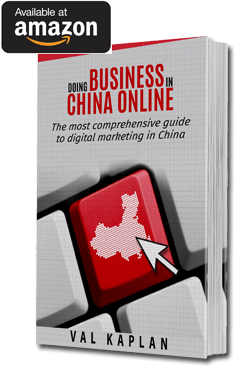Having localized website for Chinese market is one of the essential steps a foreign company should take in order to build trust and improve brand awareness locally. Localization is not the same as translation of the content, although translation is the major part of it. Our experience suggests that it isn’t a quick process and, most importantly, it requires careful planning and verifying every step with your contractor.
If you are on a bootstrap budget, the first thing to try would be finding a freelance translator through sites like Upwork or Freelancer. It’s by far the cheapest option but could also be a hit and miss. Typically, we always suggest to have your site translated to both Simplified Chinese for Mainland China audience and to Traditional Chinese used in Hong Kong and Taiwan.
Even though, both Taiwanese and Hongkongneese would have little problem reading content in Simplified Chinese, having those two choices would be seen as showing respect to millions of Traditional Chinese readers. Large number of corporate executives and managers of companies in China are from Taiwan and Hong Kong and it would certainly be a good idea to offer them proper translation as well.
Many freelance translators, who are native Chinese speakers, don’t have a good grasp of Traditional Chinese and would simply use machine translation program, like Baidu or Google Translate, that simply substitute Simplified to Traditional characters. As a result, Traditional Chinese translation would often look awkward and, sometimes, completely unreadable. If you use any of the freelance translators, make sure to test them first by asking them to translate a paragraph to both languages and have it verified with a native Taiwanese or Hongkongnese.
Never hire translators who are not native Chinese speakers, this would be a complete waste of your money. You should also make sure to verify the work before you release the payment.
Localization is not the same as translation of the content, although translation is the major part of it.
Another option is to hire a professional translation company but, unfortunately, many of them are simply a one-two man operation, regardless of what they say about themselves on their website. Large number of them would use machine translation software with some corrections afterwards. Be prepared to shop around for a while as, in our experience, 80% of such firms provide very low quality work.
Just like with the freelancers, you should test the quality first by asking them to translate one paragraph and, if you suspect that machine translation has been used for any of the languages (most likely Traditional Chinese), don’t hire them.
If you are prepared to spend anywhere around $1,000 or more, make sure to have a written contract with such company. The contract should stipulate that the company must correct the translation within 2-4 weeks after submitting it to you if you find any issues. There must be a legal recourse clause in the contract in case of substandard quality of the translation but it’s always time limited, so make sure to check their work carefully as soon as you receive it.
In the coming post, we will discuss other aspects of web presence localization specific to China market.




